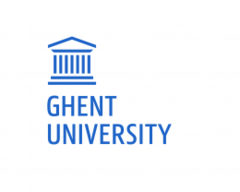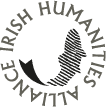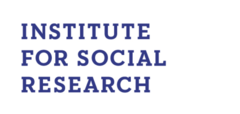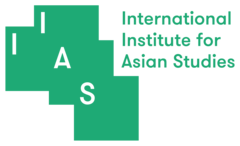List of members

FORS – Swiss Centre of expertise in the social sciences
FORS is the Swiss Centre of Expertise in the Social Sciences. We implement large-scale national and international surveys, offer data and research information services to researchers and academic institutions, and conduct methodological and thematic research. FORS is financed by the Federal Government (State Secretariat for Education, Research and Innovation SERI), by contributions from the Swiss National Science Foundation (SNSF) and by the University of Lausanne.
Our strategic priorities are the following:
Data and consulting services for social science researchers and research institutions in SwitzerlandThis includes data collections as part of the national and international social science infrastructure and services on a mandate basis supporting the entire data life cycle of social science projects in Switzerland.
Providing tools for the national and international information infrastructureWe acquire, document, preserve and disseminate high quality quantitative and qualitative data and research information in conformity with national and international standards.
Doing research related to methodological and thematic researchThanks to its own research activities, FORS is an integral part of the social science research community in Switzerland. To fulfil its key mission, FORS participates in academic research in two main fields: thematic and methodological research.
Contact info
Monika Vettovaglia
Communication Officer
FORS
University of Lausanne
Géopolis, CH-1015 Lausanne
+41 (0)21 692 37 47

Ghent University
In Belgium, Ghent University has been a pioneer in its strategy for quality enhancement and impact of SSH research since 2012. Supportive measures included a structural investment in interdisciplinary research consortia in the fields of culture & heritage, psychology, global studies, criminology and economics.
In 2018-2019, the university reinforced its efforts, leveraging these consortia towards even more ambitious interdisciplinary collaborations and societal impact. Next, UGent funded a university-wide roll-out of the initiative. There now exist ten competitively selected Interdisciplinary Consortia for Societal Impact (IDC), covering a wide variety of disciplines in SSH and STEMM, and breaking down traditional barriers inside academia as well as with stakeholders.
Contact info
Dr Stefan Meysman, Coordinator Henri Pirenne Institute for Medieval Studies
Ghent University
Sint-Pietersnieuwstraat 35 (UFo, 2nd floor, room 004)
9000 Gent
@MedievalUGent
+32 9 331 02 28

HERA – Humanities in the European Research Area
HERA – Humanities in the European Research Area – is a network of 26 Humanities Research Funders from 25 countries across Europe. The network’s mission is to promote and support European arts and humanities research through research funding, collaboration and advocacy.
HERA is committed to the view that historical, cultural, artistic and philosophical knowledge is indispensable for understanding humanity’s past, for dealing with the key societal challenges of the present, and for imagining possible futures. HERA supports the methods of reflective critique, transnational collaboration and interdisciplinarity and is dedicated to building relationships among humanities researchers across Europe and enabling the widespread sharing of knowledge and expertise.
HERA is also committed to bringing arts and humanities research into productive dialogue with policymakers, industry and the wider public. With the objective of firmly establishing the humanities in the European Research Area and in the European Commission Framework Programmes, HERA, with co-funding from the European Commission, has developed and implemented four rounds of transnational humanities calls for proposals to date.
Contact info
Chair of HERA Network Board

Humanistica
Humanistica est l’association francophone des humanités numériques/digitales. Elle cherche à réunir autour d’actions communes toutes les personnes intéressées par le mouvement des digital humanities telles qu’elles peuvent s’exercer et se penser en langue française.
Humanistica is the French-speaking digital humanities association. It seeks to unite all those interested in the digital humanities movement around common actions that can be practiced and thought of in the French language.
Contact info
Frédéric Clavert
Assistant Professor
Secretary of Humanistica

Humtank
Humtank is a think tank for research and education in the humanities created by a unique collaboration between faculties of humanities at originally twelve and, from the autumn of 2017, fifteen Swedish universities. The purpose is to strengthen and enhance the role of the humanities both within and outside academic institutions. We also want to explain to the public the relevance and sustainability of the humanities in society as a whole.
We operate on a broad front and participate in public debate with the aim of establishing a humanities-oriented research policy and a fairer distribution of educational resources, as well as changing the public's perception of and attitudes towards the humanities.
Contact info
Kristian Petrov
Associate Professor of History of Ideas, senior lecturer in Cultural Studies
Karlstads universitet
SE-651 88 Karlstad
T: +46 76-111 43 68

IHA – Irish Humanities Alliance
The Irish Humanities Alliance (IHA) was formed in September 2013. It is a joint initiative of Humanities researchers within eleven higher education and research institutions, including all of the universities, North and South, Dublin Institute of Technology and the Royal Irish Academy.
The Alliance is working to generate public awareness of the importance of humanities teaching and research in higher education and society at large. It is concerned also to inform and shape public policy in both jurisdictions and in the EU.
The Alliance has established working groups to address the main areas of strategy which impinge on the roles of the humanities in education and research today. Through these it will aim to engage productively with policymakers and funders in the wider interests of the university systems in Ireland and Northern Ireland.
Contact info
Chair: Professor Marie-Louise Coolahan
Co-Ordinator: Professor Sonja Tiernan
Royal Irish Academy
19 Dawson Street
Dublin 2
T: 00 353 (0) 1 609 0600

Institute for Social Research, Oslo
The Institute for Social Research is an independent research institute in Oslo. The Institute for Social Research is organised as a foundation and has, since its establishment in 1950, played a vital role in the development of Norwegian social research.
The main research topics of the institute are: working life, media and the public sphere, gender equality, migration and integration, civil society, elections and democracy, and welfare.
Contact info
Tanja Storsul,
Director

International Institute for Asian Studies – IIAS
The International Institute for Asian Studies (IIAS) is a global Humanities and Social Sciences institute and a knowledge exchange platform that supports with programmes which engage Asian and other international partners.
IIAS aims to contribute to a better and more integrated understanding of present-day Asian realities as well as to rethink 'Asian Studies' in a changing global context.
IIAS takes a thematic and multisectoral approach to the study of Asia and actively involves scholars and experts from different disciplines and regions in its activities. IIAS thus acts as a global mediator, bringing together academic and non-academic actors. Its current thematic research clusters are Asian Heritages, Asian Cities, and Global Asia.
The activities of these clusters are all built around the notion of social agency and address questions relevant to present-day Asian societies, while paying attention to their cultural and historical contexts.
The Institute was established in 1993 by the Dutch Ministry of Education, originally as a joint cooperation between the Royal Netherlands Academy of Arts and Sciences (KNAW) and three Dutch universities. It was established with the objective to encourage the interdisciplinary study of Asia and to promote national and international cooperation.
Today, IIAS is based at Leiden University, where it works as a globally oriented interdisciplinary institute with strong connections throughout the Netherlands, Europe, Asia and beyond. IIAS also acts as Secretariat for the International Convention of Asia Scholars (ICAS) and the European Alliance for Asian Studies (EAAS).
Contact info
Philippe Peycam, Director
Thomas Voorter, Communications Officer
IIAS
Rapenburg 59
2311 GJ Leiden
The Netherlands
T +31-71-5272227

KU Leuven
KU Leuven is an international community where innovative research forms the basis of all our academic programmes. Across the university, driven researchers and curious students continually gain new insights and use their knowledge to tackle the foremost challenges of our time.
KU Leuven will celebrate its 600th anniversary in 2025, making it one of Europe’s oldest universities. Our institution has the double honour of being the oldest university in the Low Countries and the oldest extant Catholic university in the world.
Today, KU Leuven accommodates 50,000 students, spread across the various campuses in Leuven and elsewhere in Flanders. The University and University Hospitals Leuven each employ almost 10,000 people. For research, KU Leuven ranks among the world’s finest. KU Leuven has become a cosmopolitan institution in a rapidly changing urban environment. Its unique profile reconciles cutting-edge science with quality of life and openness to talent.
KU Leuven is dedicated to education and research in nearly all fields. Its fifteen faculties offer classes and degree-granting academic programmes, whilst research activities are organised by departments and research groups. These faculties and departments are clustered into three thematic groups: Humanities and Social Sciences, Science, Engineering and Technology (SET), and Biomedical Sciences. Each of these groups sponsors its own doctoral school for organising and awarding doctoral degrees.
KU Leuven boasts thirteen campuses, spread across 10 cities in Flanders.
Contact info
Ortwin de Graef (Ortwijn)
Professor of English (Literary Studies)
Full professor Faculty of Arts

Maastricht University
Maastricht University is the most international university in the Netherlands and, with 18,000 students and 4,400 employees, is still growing. The university stands out for its innovative education model, international character and multidisciplinary approach to research and education.
Thanks to its high-quality research and study programmes as well as a strong focus on social engagement, UM has quickly built up a solid reputation. Today it is considered one of the best young universities in the world.
Contact info
Raymunde Neven
Maastricht University
Graduate School of Business and Economics
M +31 6 38 31 22 76
T +31 43 388 28 79